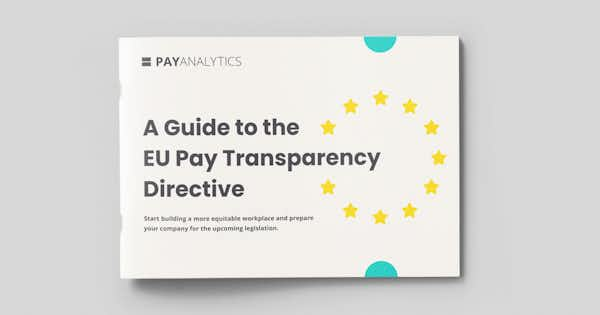Guida alla certificazione della parità di genere in Italia | Scarica il nostro e-book gratuito

California strengthens its pay equity requirements
This article was written in 2022. There is a newer information available on the subject. See the New Pay Transparency Law in California article and State of California — Pay transparency and pay data reporting.
California, the first U.S. state to pass a law on pay data reporting, is considering proposed legislation taking the requirements of the original bill even further. Senate Bill 973 on pay equity was passed in September 2020 and requires large employers to provide data on employees by race, ethnicity, and sex in the ten job categories and pay ranges used by the U.S. Bureau of Labor Statistics. The first data reports were submitted to the Department of Fair Employment and Housing (DFEH) in March 2021.
What do these new requirements mean for California-based employers?
The new draft legislation SB 1162 would intensify reporting requirements by imposing monetary penalties for noncompliance, requiring median salaries to be reported, and requiring the disclosed data to be publicly available on a government website.
More specifically, the new legislation would
Impose a monetary penalty of more than $100 per employee for first-time reporting noncompliance and up to $200 per employee for any subsequent failure.
Require employers to further disclose the specific median and average hourly pay rate for employees within each job category, race, ethnicity, and sex combination.
Require employers with multiple establishments to submit a report for each establishment.
Remove the provision of the existing law that permits an employer to submit an EEO-1 in place of a pay data report.
Require the state of California to publish a non-personally identifiable pay data report for each private employer on a website available to the public.
Require private employers to submit their pay information by the second Wednesday of May each year starting in 2023.
Countries and U.S. states continue to pass pay reporting and equity legislation, amplifying the need for good pay equity tools. Over the past year, legislation has passed in Spain, Italy, Canada, the United Kingdom, and the U.S. states of Rhode Island, Maryland, Washington, Colorado, Nevada, New York, and most recently, Mississippi.
How can PayAnalytics help you meet the California requirements?
In three easy steps, PayAnalytics automatically generates a report ready to upload to the DFEH portal.
- Input your data, either by uploading an Excel file or by connecting to our API.
- Label the dataset by identifying the demographic variables and salary information.
- Generate the California DFEH report with a click of a button.
Unsure of where you stand? PayAnalytics is a universal, scientifically driven pay equity tool that will help you prepare for public disclosure. This easy-to-use software analyzes your pay structure and suggests salary adjustments to close any unexplained pay gaps.
PayAnalytics supports you throughout your pay equity journey
Whether you are just getting started or have been conducting pay equity audits for years PayAnalytics supports you on your journey.
- The software gives an overview of your current pay equity status and the necessary next steps before reporting the data to the DFEH.
- Based on the results the software suggests salary changes to correct discrepancies attributable to the pay gap.
- Going beyond just gender, the software can analyze your data using any desired secondary demographic values and their intersections.
- PayAnalytics is a global solution adaptable to all primary regulatory environments.
Do not hesitate to contact us for further inquiries or book a software demo. You can find more information about PayAnalytics here.
Le informazioni contenute in questa pagina non intendono fornire né forniscono consulenza legale. Tutti i contenuti, le informazioni e i materiali presenti in questo articolo sono solo per uso informativo generale. Si avvisano i lettori che queste informazioni, legali o di altra natura, potrebbero non essere aggiornate.





